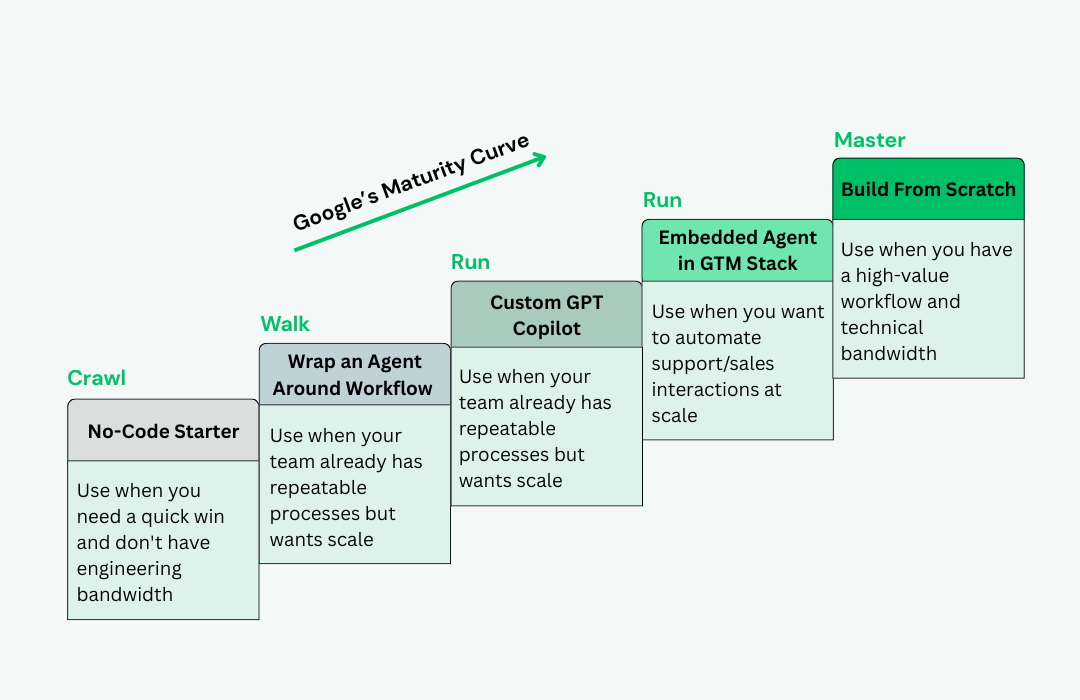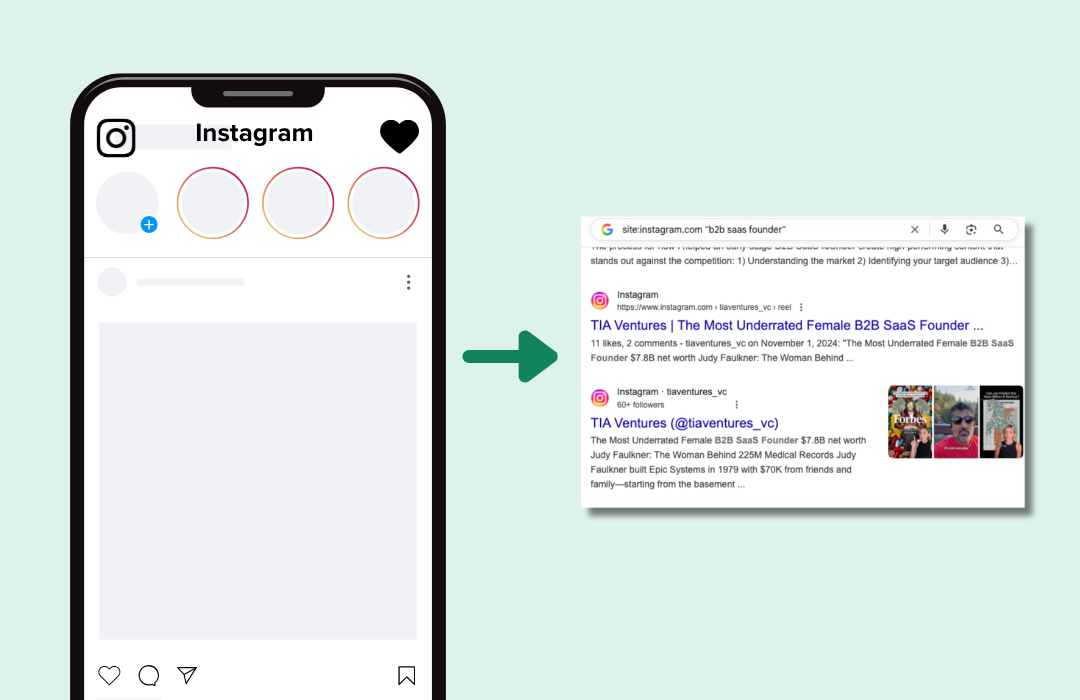Much has been said about not only skills and traits but also business acumen (or more specifically, sales acumen) that will enable salespeople to perform at their best.
Among the most frequently mentioned are product knowledge, customer empathy, problem solving, persuasiveness, and sales methodologies. No sales leader in their right mind would let loose a sales rep who lacks every one of those crucial attributes on the floor. Nor can a salesperson achieve decent performance metrics without strategic thinking, affinity to technology, and presentation.
Salespeople lacking these skills, marketing acumen, and overall business sense would be operating at a very serious disadvantage.
The list of required skills goes on and on.
But one trait that’s often missing or overlooked in the most wanted lists is business acumen.
- What Is the Meaning of Business Acumen?
- Why Is Business Acumen Important?
- How to Develop Business Acumen
- Real-World Examples of Business Acumen In Action
- Excellent Sales People Think Like Business Leaders
What Is the Meaning of Business Acumen?
Business acumen refers to a strong understanding of business situations, enabling a person to quickly assess risks and opportunities, make smart decisions, and take actions that often lead to positive outcomes. It’s also called “business sense,” “executive mindset,” or “business savvy.”
Business acumen stems from a practical awareness of the different aspects, units, processes, and roles that comprise a successful business and how these components relate to each other.
In essence, business acumen is knowing how businesses behave.
What Does It Take to Demonstrate Business Acumen?
A person with good business acumen possesses or develops some measure of leadership, innovative thinking, entrepreneurial mentality, and strategic sense. Using a business-centric frame of reference, they should be able to perform the following:
- See the big picture as well as the little details comprising a business organization.
- Determine how a specific business sustains cash flow and generates profit.
- Identify major factors or market disruptions that can benefit or negatively impact a business.
- Appreciate general business concepts and standard documents like financial statements, articles of incorporation and business communications.
- Grasp corporate objectives and mentally map different ways of achieving those objectives.
- Internalize how a specific business owner might think about issues and make decisions to solve problems or achieve success.
Business Acumen vs. Sales Acumen: What’s the Difference?
Sales acumen encapsulates the traits, experience, skills, and mindset that make a salesperson excellent at selling. These include prospecting, value articulation, problem solving, objection handling and negotiation, and relationship building. Professionals who possess good sales acumen generally have high levels of customer empathy, grit, self-motivation, and persuasive skills.
On the other hand, having business acumen is essentially having a strong understanding of business fundamentals, as explained in previous sections. In the B2B universe, selling without business acumen can be very difficult:
- If a salesperson lacks knowledge about business issues and trends affecting the customer, keeping conversations relevant and meaningful will be quite challenging. Thus, it is harder to grow the sales pipeline and walk prospects through different funnel stages.
- In B2B sales, lack of business acumen is like a person without a medical background trying to make a diagnosis (opportunity assessment), identify a disease (pain point), and prescribe the appropriate medicine or therapy (business solution).
Understandably, sales acumen precedes business acumen in importance when it comes to every sales-focused interaction. However, because customer-centricity increasingly pervades the emerging landscape, business acumen becomes nearly as important as sales acumen in the world of B2B sales.
In a market where your customers are looking for trusted advisors and consultants instead of a sales rep, you can’t fulfil their needs as a sales practitioner without business acumen:
- For your team to stay relevant, your sales force should be familiar with the language, concepts, and priorities of business.
- It’s only through the lens of a business decision maker could you frame a custom solution that precisely addresses your customer’s main problems.
- And it’s only on top of strong business fundamentals could you best articulate why the solution you are offering is an excellent investment for the customer.
High-performing B2B salespeople serve as trusted partners and consultants to their customers. They understand relevant business models and industry trends that affect their prospects.
Why Is Business Acumen Important?
Some salespeople fail at building meaningful relationships or closing deals simply because they do not grasp the fundamentals of how businesses operate and make decisions. Although salespeople might have been extensively trained in how to articulate the benefits of their products, it still isn’t enough to build strong connections with dynamic business organizations.
Business Acumen Is Not Just For CEOs
Business acumen is not only for business owners, entrepreneurs, or corporate leaders. For companies to thrive in the highly competitive landscapes of tomorrow, business acumen should flow in their corporate DNA. Specifically, a B2B company’s sales force — which owns the revenue streams that sustain and enable the company to grow — should be staffed by people who truly understand how businesses work and how enterprises behave in different scenarios.
Without business acumen, sales professionals will find it extremely difficult to build and sustain strong and value-driven bonds with corporate clients.
In contrast, a salesperson with sound business acumen will be able to perform the following critical tasks during sales engagements:
- Plan and execute custom engagement strategies by determining the best approach in providing value based on the specific customer’s business context.
- Build trust by conveying a strong understanding of businesses and their hierarchy of priorities.
- Ask the right questions and obtain important answers fast.
- Identify challenges, problems, and pain points.
- Keep business conversations relevant, meaningful, and insightful.
- Collaborate with the customer in building possible solutions to pain points.
- Assess whether custom solutions proposed would be feasible in terms of related costs and sustainability on the part of the vendor.
- Find the sweet spot for both vendor and customer.
Sales and Business Acumen Are Often Tied Together
Selling is pretty straightforward:
You won’t go very far if you don’t know your customer.
In today’s sophisticated B2B markets, businesses don’t really need salespeople in the traditional sense. They’d rather find and consume product information online at their own convenience than receive phone calls from a rabid salesperson prodded by a sales quota, armed with a call script, and conditioned not to go beyond a prefabricated sales pitch.
Instead of stereotypical sales practitioners, businesses need accomplished advisors and consultants who:
- Understand where their clients are coming from
- Know how to probe aspects of the organization to identify pain points
- Have the ability to create unique solutions that will address specific challenges
- Recognize relevant business goals to orchestrate outcomes that lead to customer success
Without business acumen, a salesperson will never achieve that.
How to Develop Business Acumen
For sales organizations as well as for individuals who want to be entrepreneurs, business owners, or corporate leaders, one thing about business acumen stands out as very good news:
Business acumen can be learned.
It’s not an innate ability. Anyone with enough motivation can develop business acumen through experience, self-learning through reading and networking with business leaders, and formal training.
Salespeople can start by learning about a specific enterprise they are engaging. They should possess substantial knowledge of the specific industry the enterprise belongs to and the key factors that drive this industry.
They can also learn more about their own organizations, the different units that comprise the company, the various processes that help it generate profit, and the ways and roles through which strategic decisions are made. You can initiate proactive efforts to network with workers and executives across different departments and to realize their own challenges and how they operate.
Tools, Books, and Other Resources For Building Business Acumen
Moving outward, the next step is to voraciously read books and consume multimedia materials such as audio files, podcasts, and videos that will help you quicken your goal of building a decent level of business acumen.
There are also more formal training methods, such as going to school and signing up for workshops and seminars. While enrolling in an Ivy League business school or joining a branded business training from top-notch providers will definitely bolster your business acumen, you can save on costs by first checking out free online courses.
Top resources to get you started:
Websites/Magazines
2) Entrepreneur
3) Inc.
4) Fast Company
5) The Harvard Business Review
Podcasts
2) Make It Happen – B2B Sales Talk with John Barrows
5) HBR Ideacast
7) THE $100 MBA
Bonus: 56 Best Sales Podcasts to Follow in 2020
Books
1) Seeing the Big Picture: Business Acumen to Build Your Credibility, Career, and Company by Kevin Cope
2) The 21 Irrefutable Laws of Leadership by John Maxwell
3) The New One Minute Manager by Ken Blanchard and Spencer Johnson
4) Drive: The Surprising Truth About What Motivates Us by Daniel Pink
5) Traction: Get a Grip on Your Business by Gino Wickman
6) The Goal: A Process of Ongoing Improvement by Eliyahu M. Goldratt
7) Linchpin: Are You Indispensable? by Seth Godin
8) Good to Great: Why Some Companies Make the Leap . . . And Others Don’t by Jim Collins
Bonus: Recommended Reading by Sales Hacker: Best Sales Books for 2021
Free Online Courses
1) Principles of Management, Saylor Academy
2) Economic Analysis for Business Decisions, MIT Sloan School of Management
3) Introduction to Finance, University of Michigan
4) Organizational Analysis, Stanford University
5) U.Lab: Transforming Business, Society, and Self, Massachusetts Institute of Technology
6) Behavioural Economics in Action, University of Toronto
7) Innovation and Commercialization, Massachusetts Institute of Technology
Real-World Examples of Business Acumen In Action
Several popular business personalities pop up each time the term “business acumen” is used. You’ll hear some anecdotes or comments about Richard Branson, Henry Ford, Warren Buffett, Steve Jobs, Jeff Bezos, and other business figures.
Here are a few concrete instances showcasing how some of these industry giants use their astute business acumen to gain advantage/benefit:
Warren Buffett
Warren Buffett developed strong business acumen through extensive experience, having run a non-stop string of businesses from an early age.
As a kid, he sold magazines, bubblegum, and worked at a grocery store. During high school, Buffett and a friend invested $25 for a pinball machine that they strategically placed in a barber shop. The small business expanded within months to several pinball machines at different barber shops. Within a year, they sold the business for $1,200.
Buffett, now a billionaire investor, leverages his business acumen to intuit the profitability of companies and determine whether these companies are worth investing in.
Jeff Bezos
Led by Jeff Bezos, Amazon operates the world’s largest online retail business in terms of revenue and market capitalization.
Customer data gathered over the years allowed Amazon to understand customer behavior and focus all other business units towards customer satisfaction. This led to a series of corporate acquisitions and product innovations that strengthened Amazon’s supply chain strategy and diversification efforts.
Richard Branson
Like Buffett, Virgin Group founder Richard Branson started running a business early in life.
From publishing a magazine and operating a mail-order business during his teen years, Branson now leads a conglomerate that controls more than 400 businesses.
Excellent Sales People Think Like Business Leaders
Sales skills alone may have been sufficient to close deals in the ,but the game has completely changed altogether. Sales teams now need to adopt entirely new playbooks to win. A key element integral to that playbook and a crucial trait for all your salespeople is business acumen.
Enterprise customers demand a lot more from vendors these days. They don’t need and are often turned off by run-of-the-mill sales reps. Instead, they deeply appreciate trusted consultants who understand the priorities of their business and recognize the different market drivers that influence important decisions in their industry.
Business acumen enables a salesperson to build trust, create sound engagement strategies, make smart calls, and deliver solutions that squarely address their customer’s problems and orchestrate business outcomes clients expect.
Salespeople with strong business acumen are the new power players in the game of B2B selling. Because they know exactly how to help client organizations succeed, they eventually help their own companies achieve sales targets and deliver a winning performance.







